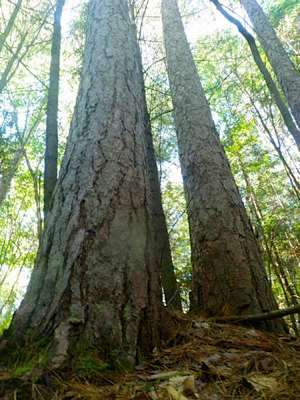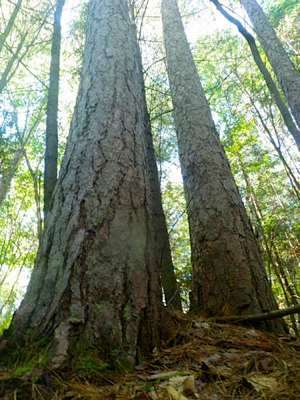After thousands of Canadian residents banded together to preserve a forest of 300 year-old red pines threatened by expanded mining, the government scrapped its plans to rescind the "reserve" status bestowed on 840 acres (340 hectares) of pristine forest.
In 1999, the government of Ontario promised to protect Wolf Lake's ancient pines, located near the Temagami canoeing area northeast of Sudbury.
The stand of old growth red pines is one of the last remaining in Canada, and by far the biggest — three times bigger than the next largest remnant, according to Earthroots, a local conservation organization. Extensive logging and mining had eliminated all but 1.2% of the original forests, leaving it a critically endangered ecosystem of the NorthEast.
Since word leaked in December that plans were being discussed to change the reserve status to allow for more logging and mining, 27 Sudbury-area, provincial and national organizations and businesses, along with famous conservationists like David Suzuki, banded together and formed the Wolf Lake Coalition (SaveWolfLake.org). The Coalition called on the Province to honor its 13 year-old promise to permanently protect Wolf Lake and the surrounding trees.
Over the next three months, citizens launched a Facebook campaign and the Ministry of Natural Resources received hundreds of letters expressing fears that increased mining and logging near Wolf Lake would destroy the ecosystem that supports the "irreplaceable" old trees, reported the Toronto Star. Supporters argued there are other ways to create jobs, and still preserve the natural heritage of the region.
Tuesday, the government relented, saying they would not tamper with the reserve designation or replace it with a "general use" status that would have opened the door to more logging in the area.










Be the first to comment